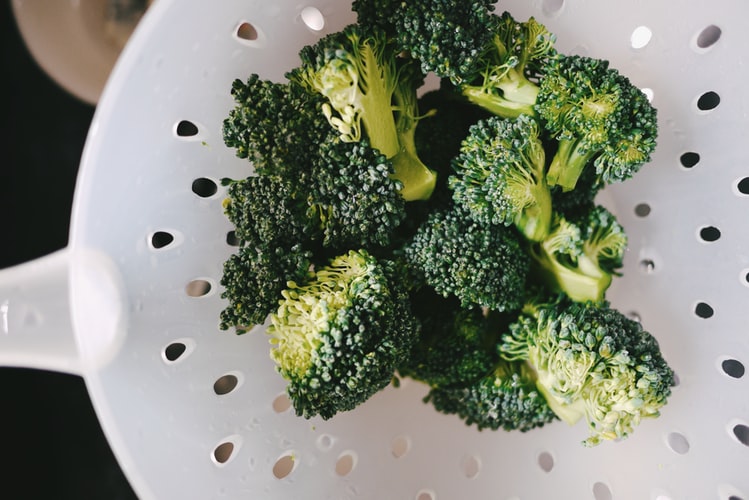Essential Minerals in Juice: Benefits and Nutritional Insights
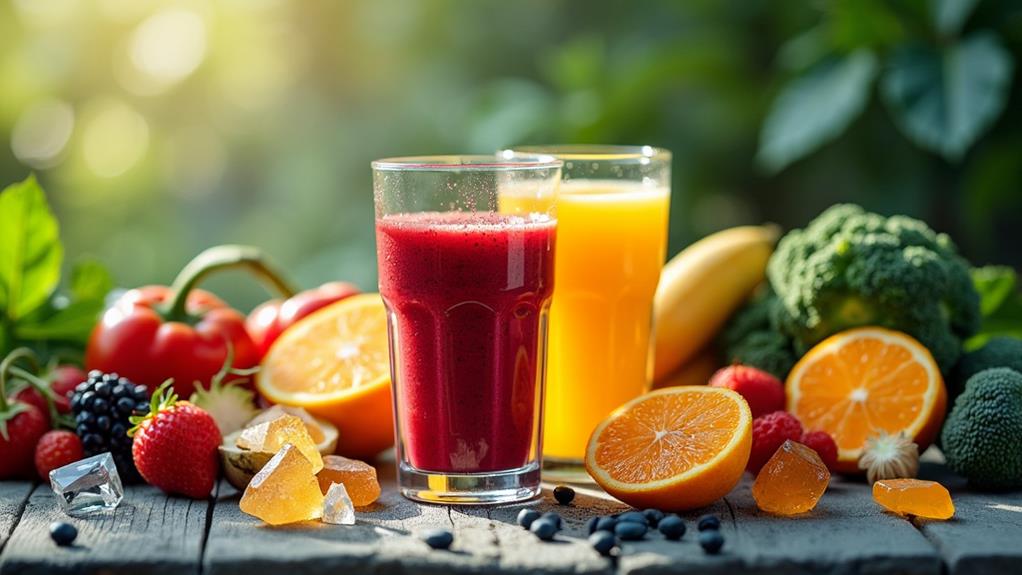
Juices rich in vital minerals like magnesium, zinc, and iron offer diverse health benefits and can complement your diet effectively. With minerals such as potassium in citrus juices and antioxidants in pomegranate juice, you'll support heart health and bone strength. Apple and vegetable juices provide trace amounts of iron and magnesium, fundamental for oxygen transport and immune function. Moderation is key, though, as whole foods usually deliver more thorough nutrition, including fiber. Whether enhancing immune function or increasing mineral intake, juices serve as a convenient supplement, especially for at-risk groups. Uncover more about how juices can fit into your dietary routine.
Importance of Minerals in Diet
A handful of important minerals like magnesium, zinc, copper, iron, and selenium are fundamental for keeping your immune system functioning at its best and managing inflammation. You need these necessary minerals to support your body's defense mechanisms. A balanced diet usually supplies enough minerals, but some people may face deficiencies. Pregnant women, vegetarians, and athletes are particularly at risk and should monitor their intake to avoid potential issues.
Magnesium, for instance, is critical for activating enzymes and plays a significant role in diverse immune responses. If you're a man, aim for 300-400 mg daily, while women should target 270-310 mg. Zinc, involved in over 300 enzymatic reactions, has a recommended intake of 11 mg/day for men and 8 mg/day for women. Without enough zinc, you might experience increased oxidative stress and inflammation, impacting your general health.
Iron, another important mineral, is necessary for immune function. A deficiency, affecting about 25% of the global population, can severely impair your immune system. Women and children are particularly vulnerable, and supplementation can help correct low levels. Ensuring an adequate intake of these minerals is essential for maintaining peak health.
Key Minerals Found in Juice
While a balanced diet is fundamental for obtaining necessary minerals, juices offer a convenient and tasty way to incorporate supplementary nutrients into your daily routine. Juice, especially from fruits like oranges and apples, is rich in potassium, which is significant for heart health and maintaining proper blood pressure levels. Citrus juices, such as orange juice, not only provide a hefty dose of vitamin C but also small amounts of magnesium, contributing to your immune system's functionality and muscle health.
Pomegranate juice stands out with its high antioxidant content, which supports general health, and also provides small amounts of potassium and vitamin K, aiding in bone strength. Apple juice, on the other hand, contains trace amounts of iron and magnesium. Iron is critical for oxygen transport in the body, while magnesium plays a role in supporting your immune system.
Vegetable juices like spinach or beetroot are excellent sources of minerals such as calcium and iron, which are fundamental for bone health and energy metabolism. By integrating these assorted juices into your diet, you can enjoy their health benefits and guarantee you're getting a diverse range of significant minerals and nutrients.
Benefits of Magnesium in Juice
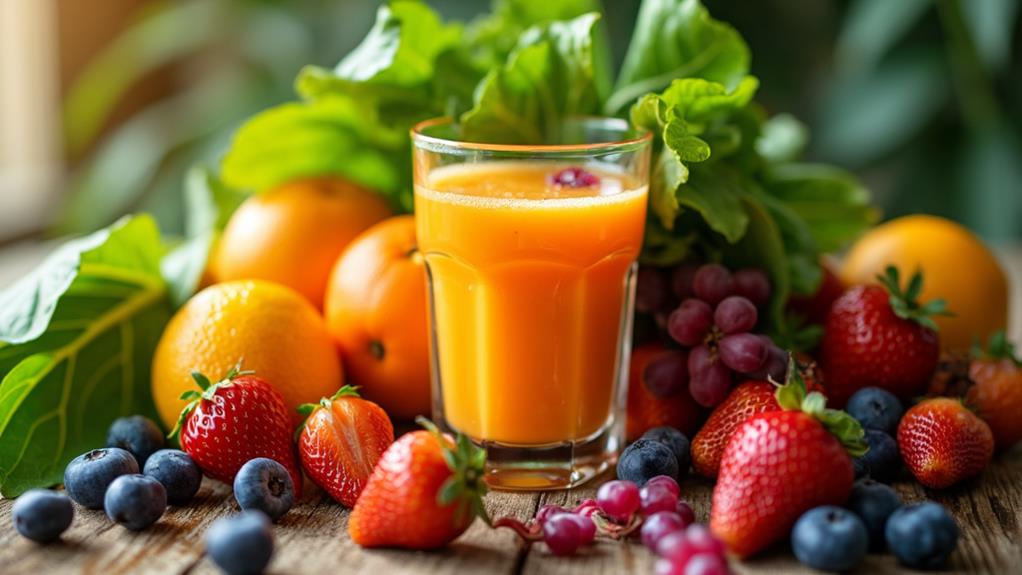
Magnesium's significance in your diet can't be overstated, especially in relation to immune function. It's essential for maintaining your immune system's effectiveness. With a daily intake recommendation of 300-400 mg for men and 270-310 mg for women, magnesium helps regulate immune cell functions and reduce chronic inflammation. Juices made from magnesium-rich fruits and vegetables, like spinach and bananas, are not only invigorating but also contribute considerably to meeting these daily nutritional needs.
By incorporating these juices into your diet, you're enhancing your immune function and potentially lowering systemic C-reactive protein (CRP) levels, which, when heightened, indicate increased inflammation and a compromised immune response. This is particularly crucial for at-risk groups such as athletes and individuals with chronic illnesses who need to maintain peak immune competence.
The nutritional value of magnesium in juices extends beyond just immune support. It acts as a safeguard against chronic inflammation, promoting comprehensive health and well-being. By choosing juices rich in magnesium, you're taking a proactive step towards better health, ensuring that your body can fend off illnesses more effectively and maintain a balanced immune response.
Zinc's Role in Health
Zinc is a powerhouse mineral essential for your body's ideal functioning. It supports over 300 enzymatic reactions, including DNA/RNA synthesis and protein formation, both fundamental for your complete health. This mineral also plays a significant role in your immune function by influencing immune cells like neutrophils and T cells. Without adequate zinc, your immune system can falter, leading to increased oxidative stress and a higher risk of chronic inflammation and infections.
To harness zinc's health benefits, aim for the recommended daily intake: 11 mg for men and 8 mg for women. However, around 17% of the global population risks insufficient zinc intake. Ensuring you get enough zinc is critical for maintaining a robust immune system and protecting against chronic diseases.
Here are three important insights about zinc:
- Immune Function: Zinc improves both innate and adaptive immune responses, reducing the risk of infections.
- Chronic Inflammation: Adequate levels combat oxidative stress and systemic inflammation.
- Dietary Sources: Incorporate foods like meat, shellfish, legumes, seeds, nuts, dairy, and whole grains to meet your zinc needs.
Iron Content in Juices
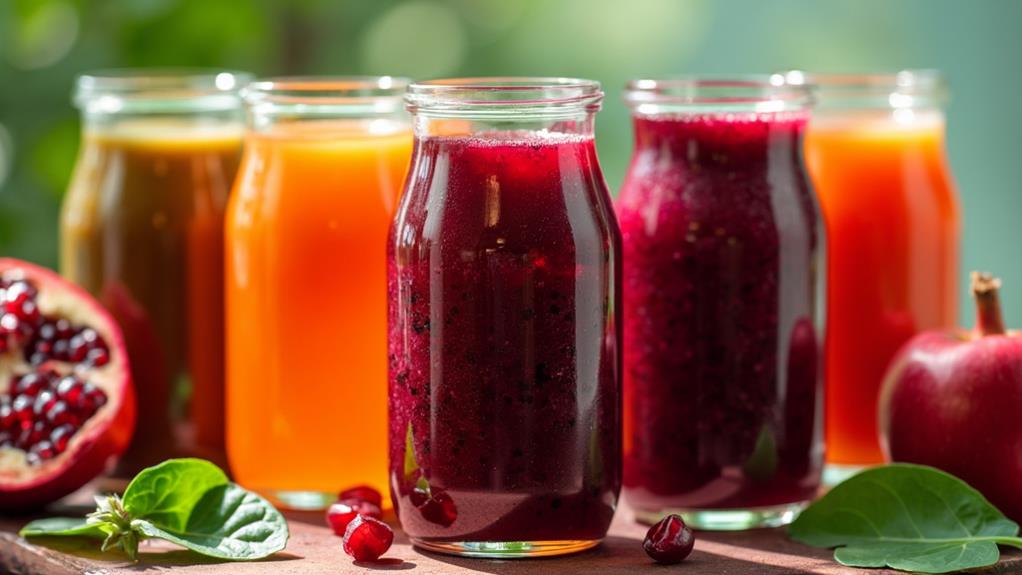
As you focus on maintaining a balanced diet, exploring the mineral content in juices offers valuable insights, particularly when considering iron. Fruit juice varieties like pomegranate and prune are known for their notable iron content. A typical 8-ounce serving of pomegranate juice provides around 0.3 to 0.5 mg of iron. While this contributes to your daily iron intake, it doesn't fully meet the recommended dietary allowance. Beet juice is another option, offering about 0.2 mg of iron per 100 ml, making it a beneficial choice for increasing iron levels.
To optimize the benefits of iron-rich juices, pair them with vitamin C sources, such as citrus juices. Vitamin C improves iron absorption, ensuring you get the most out of what you drink. This combination can be particularly helpful if you're looking to raise your iron intake through beverages.
However, it's significant to keep in mind that juices shouldn't replace whole food sources rich in iron. Leafy greens, beans, and lean meats are vital for meeting your nutritional needs effectively. Juices can complement these foods, but relying solely on them won't fulfill your daily iron requirements. Balance is key to a well-rounded diet.
Copper's Health Contributions
Understanding copper's health contributions helps illuminate its significant role in your body. Copper isn't just a trace mineral; it's fundamental for diverse bodily functions. It acts as a cofactor for enzymes, aiding energy production and antioxidant defense. One key area where copper shines is in supporting your immune function. A deficiency in copper can lead to reduced humoral and cellular immunity, which has been observed in studies with copper-deficient mice. This makes copper critical for a robust immune system.
Copper also plays a noteworthy role in iron metabolism. It assists in utilizing iron for red blood cell production, preventing anemia and guaranteeing efficient oxygen transport throughout your body. This highlights its importance in maintaining your comprehensive health.
To guarantee you're getting enough copper, consider these dietary sources:
- Shellfish - Rich in copper, they're a great supplement to your diet.
- Nuts and seeds - Easy to snack on and packed with this fundamental mineral.
- Dark chocolate - A delicious way to enhance your copper intake.
Calcium in Fruit Juices
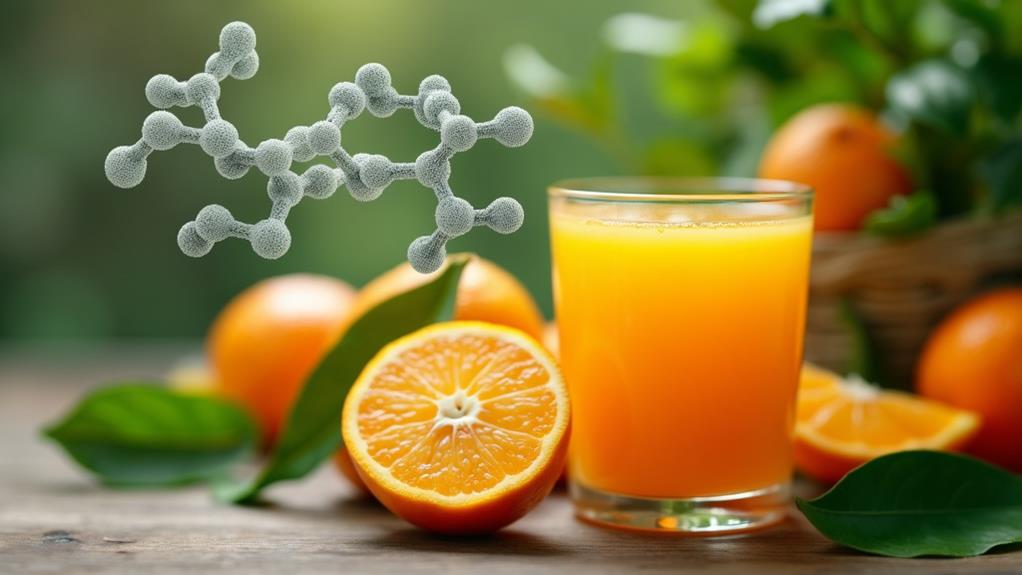
In relation to critical minerals, calcium often takes the spotlight for its significant role in maintaining strong bones and supporting muscle and nerve functions. You need about 1,000 to 1,200 mg of calcium daily, depending on your stage of life and gender. If you're not getting enough calcium from dairy products, fortified orange juice makes a great alternative. A typical serving of fortified orange juice can pack around 300 mg of calcium, giving your daily intake a substantial increase.
Whole fruits like oranges do contain calcium naturally, about 60 mg per medium orange. However, the juicing process can reduce this amount. That's why fortified options are beneficial, as they help you meet your nutritional needs more effectively. Furthermore, when you consume calcium-rich juices like fortified orange juice alongside vitamin D, your body can improve calcium absorption. This combination is essential for ideal bone health and can help lower the risk of osteoporosis over time.
Don't overlook the importance of calcium in your diet. Regardless of whether you prefer your calcium from whole fruits or fortified juices, ensuring adequate intake is fundamental for maintaining your health and well-being.
Balancing Juice and Whole Foods
In regards to integrating juice into your diet, striking a balance between juice and whole foods is vital. Juicing provides a concentrated source of vitamins and minerals but lacks the fiber found in whole fruits and vegetables. Fiber is important for digestive health and helps you feel full. Whole foods also improve nutrient absorption and offer supplementary phytochemicals often lost during juicing. To achieve a balanced diet, consider these points:
- Moderation is Key: Limit juice intake to 4-6 oz per day. This allows you to enjoy the nutrient benefits while minimizing sugar consumption.
- Supplement, Don't Replace: Use juices as a supplement to a diet rich in whole fruits and vegetables. This guarantees you get necessary fiber and a diverse range of nutrients.
- Meet Important Mineral Needs: Rely on whole foods to meet your daily intake of important minerals like magnesium and zinc. This is more effective than depending solely on juices.
Safety in Juice Preparation
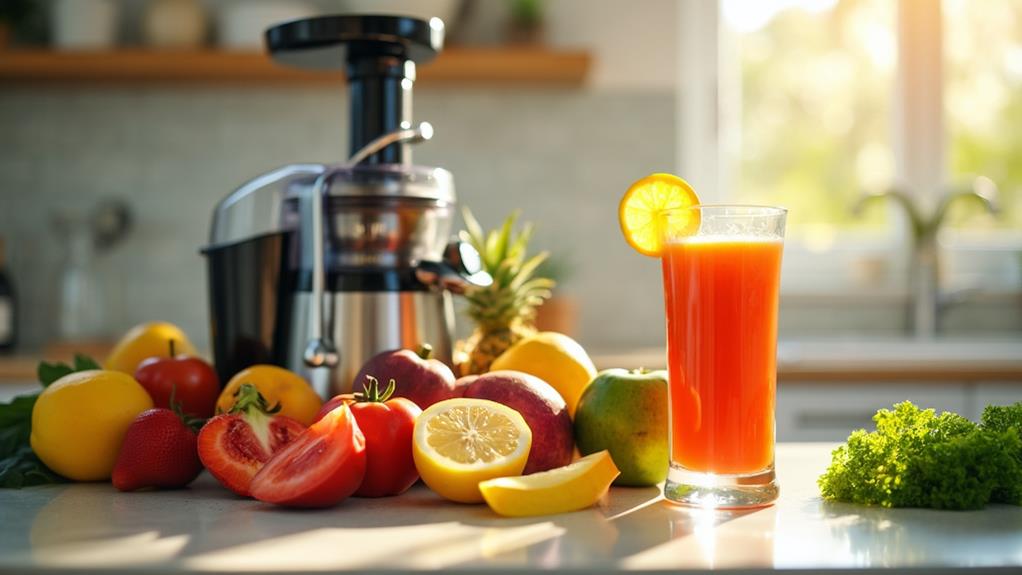
While balancing juice and whole foods improves health, guaranteeing juice safety is just as important. Freshly made juice can become a breeding ground for harmful bacteria if not consumed promptly. To avoid the risk of spoilage and potential contamination, always drink your juice immediately after preparation. Making only as much juice as you can consume in one sitting reduces the chance of bacterial growth in leftovers.
Commercial juices are generally safer due to pasteurization, a process that eliminates pathogens and reduces the risk of foodborne illness. However, always check labels to confirm juices are pasteurized. Proper refrigeration of both homemade and commercial juices is critical to maintain their safety and freshness. Store them in the fridge promptly and consume within recommended timelines to prevent spoilage.
Keeping your juicing equipment clean is fundamental. Residual pulp and juices can harbor bacteria, leading to contamination. Regularly disassemble and thoroughly clean your juicer to minimize these risks. By following these juice safety guidelines, you protect yourself from potential illnesses and guarantee that your juice consumption remains a healthy, enjoyable part of your diet. Always prioritize safety to enhance the health benefits of your juice.
Research on Juice Nutrition
Juice packs a punch regarding delivering significant minerals like potassium, magnesium, and calcium, essential for muscle and nerve health. Research shows that 100% fruit juices, such as orange and pomegranate, are excellent sources of these fundamental minerals. Potassium, found abundantly in these juices, plays a noteworthy role in supporting cardiovascular health. Meanwhile, juices derived from leafy greens and vegetables provide substantial amounts of magnesium and iron, critical for immune function and energy metabolism. However, keep in mind that the mineral content in juice can vary greatly depending on the type of fruit or vegetable used.
To get the most out of your juice consumption, consider these nutritional insights:
- Balance: Complement your juice intake with whole fruits and vegetables to guarantee you're getting enough fiber and a wider range of nutrients.
- Variety: Opt for a variety of juices, such as combining fruit and vegetable juices, to optimize your mineral intake.
- Moderation: While juice can be beneficial, it's significant not to rely solely on it for your nutritional needs.



